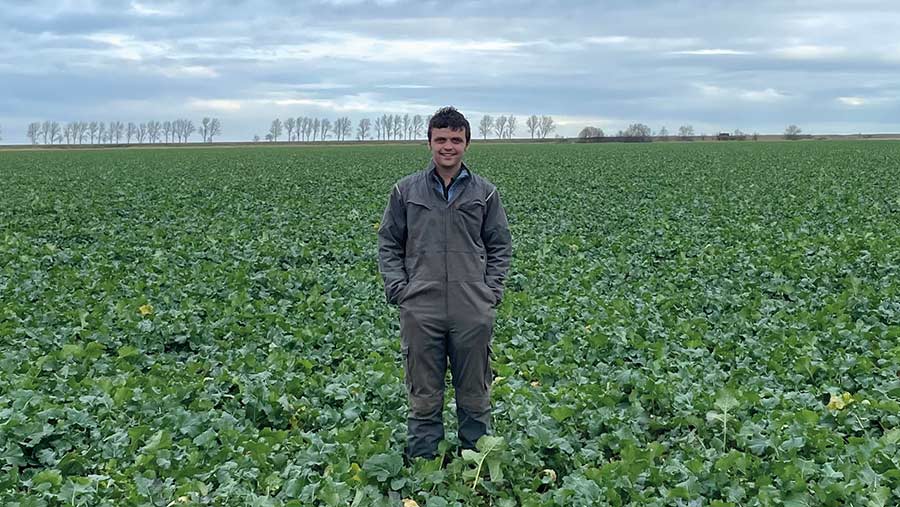Mike Neaverson: Collaboration is key to growing OSR
 © Mike Neaverson
© Mike Neaverson Just like Dastardly and Muttley, I now spend much of my winter trying to stop the pigeon.
Back in the recent past when every man and his dog grew oilseed rape, there was sufficient winter fodder to dilute these flying vermin to little more than an annoying nuisance.
The flocks are now so vast, though, and the feeding so concentrated that they can wipe out a backward field of oilseed rape in less time than it takes to make a pigeon pie.
See also: New Farmlife columnists hopes for 2022.
With such a formidable burden of cabbage stem flea beetle larvae already eating away at the inside of the plant too, avian defoliation means that the crop stands little chance of growing away in the spring.
Fundamentally, that’s the main issue here. As an industry, we could sort all this out overnight if we wanted to.
Flea beetles have no significant natural host, so we could break the pest cycle almost entirely if all of us, on a regional level, decided to bin off growing oilseed rape for one year in three.
“Farmers in the East Midlands: you grow something else in 2023. East Anglia: your turn is in 2024.” And so on.
I’m already doing this on a local scale. Farms in this part of the world tend not to be ring-fenced, so we talk to neighbours and rotationally plan blocks of oilseed rape together. It definitely helps.
The fact is that profitable heavy-land break crops are hard to come by. While all of us are competing with our neighbours, we are also operating in a global commodity market.
Imagine what reliably being able to grow big areas of good OSR again would do to the collective bottom line.
Farmers famously struggle to work together, so the OSR break year would probably need to be enforced.
You’d need to stop Clever Richard from drilling the black gold in your area’s restricted season. I concede that this might be controversial, but there must surely be a mechanism to do it.
Growing decent OSR has always been a “wacky race” between the pigeons, the slugs and the onset of winter. But it’s our attitude to collectively working together that could be the real villain here.

